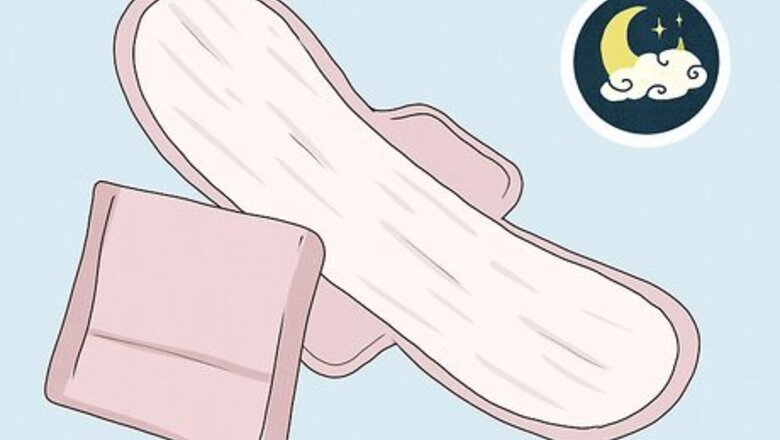
views
Use a heavy-flow pad with wings to prevent leaks.
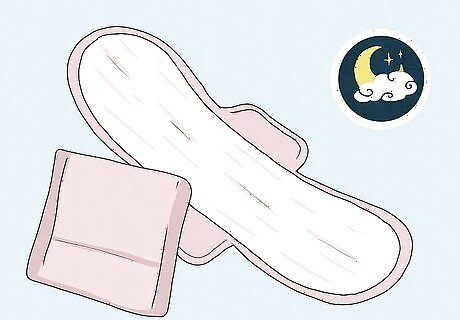
You can also use overnight pads to protect your sheets at night. A pad is an absorbent paper liner that you stick on your underwear to soak up menstrual blood. For a heavy flow, use pads with wings so they'll stay in place and prevent leaks. You can even consider using an overnight pad, which is thicker and able to withstand a heavier flow, during the daytime if you need to. Some people find reusable pads to be useful.
Go with super absorbency tampons.
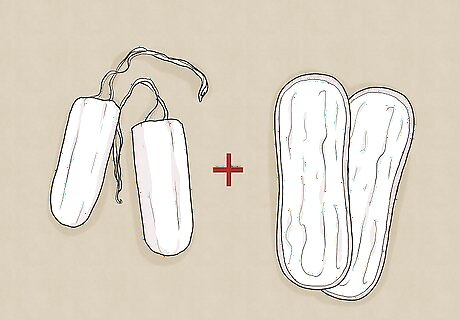
If you're worried about leaks, wear a pantyliner or period underwear, too. A tampon is an absorbent cotton product that you insert into the vagina to absorb menstrual blood. For heavier periods, opt for a super tampon. A tampon is also a great option if you are looking to stay active during your period. If you struggle to use a tampon at first, that's completely normal! Ask your parent, another relative, friend, or doctor to give you advice on using them. A panty liner is a very thin pad. Wear them for added protection when you're also wearing a tampon or on light days during your menstrual cycle. Change your tampon at least every 8 hours. Leaving a tampon in for too long can result in infection or toxic shock syndrome (TSS). See your doctor right away if you're using a tampon and develop TSS symptoms. These include sudden fever, vomiting, confusion, and seizures. Never wear a tampon to bed as you won't be able to charge it as frequently.
Try menstrual cups at night to protect your sheets.
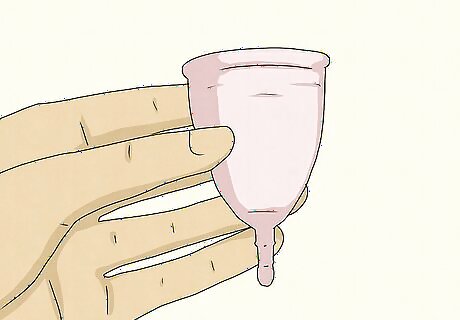
Cups aren't always as comfortable, but they hold more than pads and tampons. A menstrual cup is a small cup you insert into the vagina to collect menstrual blood. Wash this product after each use to reuse it. Choose this product if you're looking for a more environmentally sustainable option.
Wear period panties.
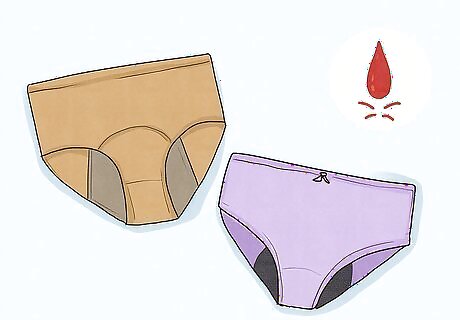
These are absorbent, period-friendly underwear. Wear them along with your choice of menstrual product for added protection. You can also wear them at night for an extra peaceful night's sleep. You won't have to worry about changing your pad or tampon throughout the night! You can wash and reuse period panties, so they are a great, sustainable option!
Change your menstrual hygiene products every two hours.
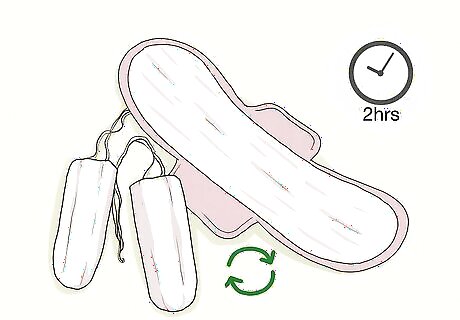
Do this to prevent accidents or potential health hazards. To be extra safe, regularly replace your menstrual products and make sure you carry enough with you at all times. It's also important to change tampons at least every eight hours to minimize your risk of Toxic Shock Syndrome. It's considered abnormal to regularly soak through your menstrual hygiene products in 1-2 hours. Talk to your doctor if you change your products consistently and are still experiencing overflow!
Keep menstrual products with you at all times.
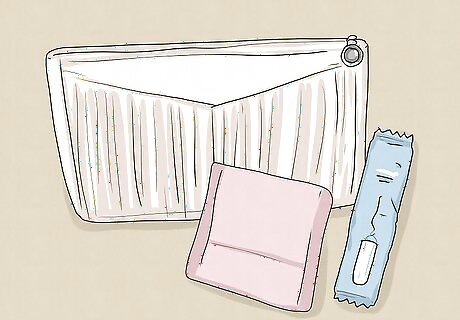
Store extras in your purse or backpack. Even when you're not on your period, it's always best to be prepared. Have a few of your preferred menstrual hygiene products on hand so that you (or a friend) can avoid a potential accident. If you are at school and forgot your supplies, visit the counselor or nurse's office. Most likely, they'll have some extras!
Keep an emergency kit in your car, locker, or office.
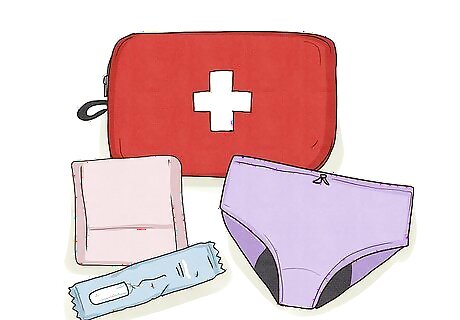
Include extra underwear, pants, and menstrual hygiene products. Period accidents happen to everyone sometimes, no matter how prepared. To make sure you've got extra supplies if you (or a friend) ever experiences a surprise like this, make an emergency kit. Keep it somewhere safe and easily accessible, like your car, locker, or desk at work.
Wear dark clothes.
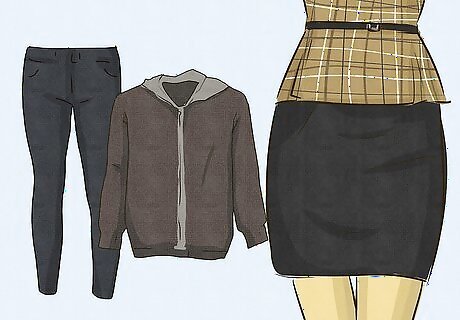
That way if you do experience overflow, it won’t be so noticeable. Stick to black pants or skirts when you're out and about. You can also bring a dark jacket or hoodie to tie around your waist. If you do experience overflow, this can be a great way to hide the accident until you can get home and change. If you do experience an accident, know that it's nothing to be embarrassed about! Everyone with a period has experienced it at one time or another. No matter how many extra menstrual products you bring, wait to wear any white or pastel-colored clothes until your period is over.
Opt for dark underwear.
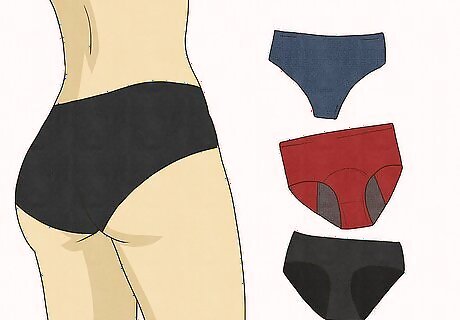
Wear dark, comfy underwear to prevent stains. Even the most prepared people experience overflow accidents sometimes. Wear black underwear to reduce the risk of noticeable stains. You should also stick to cotton underwear and avoid thongs during your menstrual cycle. Tight-fitting thongs can lead to infection if worn regularly, as they block air movement to your vagina. Opt for soft, breathable cotton underwear instead and save thongs for special occasions only. If you bleed into your underwear, wash them separately or with dark colors.
Sleep with a dark towel over your sheets.
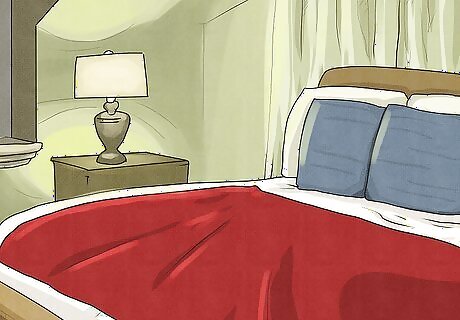
Do this to avoid nighttime stains. It can be hard to fall asleep if you're worried about a potential overflow accident on your new white sheets. Alleviate any anxiety by laying out a dark towel to sleep on! Consider having a few dark towels you use for this purpose alone. If a towel doesn't sound comfortable or you'd like another option instead, try waterproof sheets.
Manage cramps with OTC pain medication.
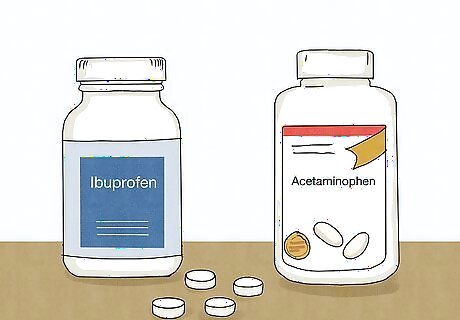
NSAIDS like Ibuprofen, naproxen, and acetaminophen can help with cramps. Unfortunately, another symptom of a heavy period is severe menstrual cramps. NSAIDs can alleviate the pain and even reduce blood flow. Follow the instructions on the label and take the medication of your choice (do not combine them) upon experiencing symptoms. Take regularly for 2-3 days or until your cramps subside. If you get painful cramps often, you can preemptively start taking medicine as soon as you get your period. Only take medicine as directed by your doctor or the label. Talk to your doctor before using any medicine if you have health problems. For severe cramps, your doctor can prescribe stronger pain medicine.
Treat your cramps with a heating pad.
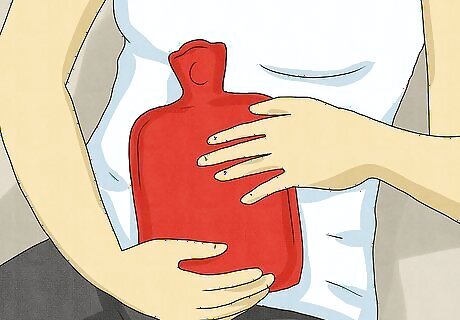
Heat can be a great relief when dealing with cramps. Hold a heating pad to your abdomen or lower back. If you don't have a heating pad, try a hot water bottle instead. Even taking a hot shower helps ease the pain. Other natural remedies for heavy period cramps include: Meditating to lower your stress. Stress can increase the severity of your cramps. Avoiding caffeine. Drinks like coffee can also make your cramps worse.
See a doctor to make sure your flow is normal.
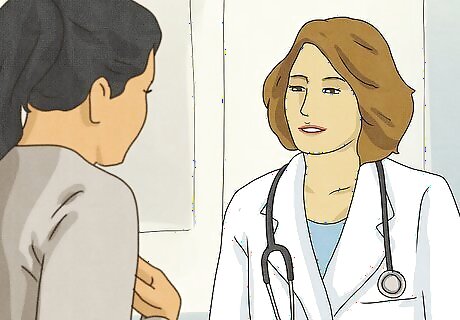
Soaking through tampons or pads in 1-2 hours is considered abnormal. If you struggle with heavy periods like these, you may have an underlying medical condition. These conditions can be related to the health of your uterus as well as your hormone levels. Conditions include endometriosis, pelvic inflammatory disease, and fibroids. Heavy menstrual bleeding can also be related to a hormonal imbalance brought on by polycystic ovary syndrome, thyroid problems, and insulin resistance. Visit a doctor to determine if an underlying condition is the cause of your heavy periods. To determine the cause of your heavy period, you may undergo a pelvic exam, pap test, ultrasound, or an endometrial biopsy. Your doctor will also ask you questions about your family medical history, any medications you are currently taking, your weight, and your stress level. Some people do not have any underlying conditions and simply experience a heavier period.
Ask your doctor about birth control methods.
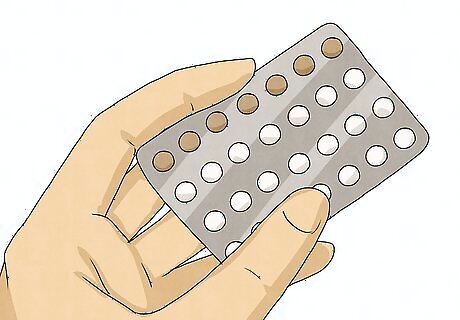
Birth control pills or a hormonal IUD can lessen symptoms. Both methods can regulate your period, lessen bleeding, or even make it so you do not experience a period altogether. To determine if this is the right course of action, your doctor will ask you questions about your period flow, lifestyle, and medical history. Not all forms of birth control reduce bleeding. Unlike a hormonal IUD, a copper IUD can increase bleeding and make your period heavier.
Eat plenty of iron-rich foods.
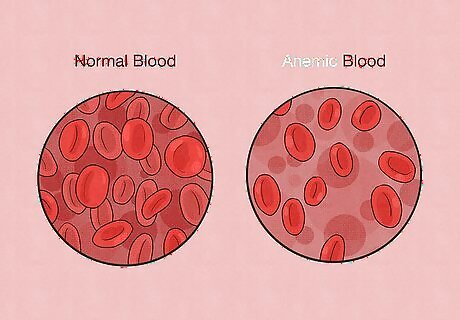
Iron deficiency anemia can occur if you have really heavy periods. When you lose a lot of blood, it depletes the levels of iron in your body. To prevent anemia, try eating iron-rich foods like red meat, seafood, spinach, and fortified cereals, and bread. You should also talk to your doctor if you experience any symptoms of anemia, including fatigue, pale skin, a sore tongue, headaches, dizziness, or a fast heartbeat. Preempt your blood loss by taking a multivitamin that has iron in it, or ask your doctor whether you should take an iron supplement. Get enough vitamin C to enhance how your body absorbs iron. Eat foods like oranges, broccoli, leafy greens, and tomatoes.


















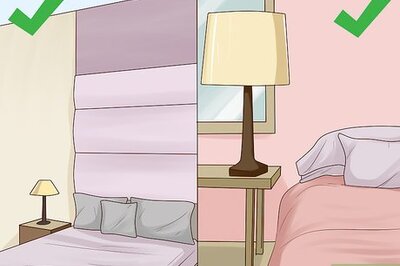

Comments
0 comment